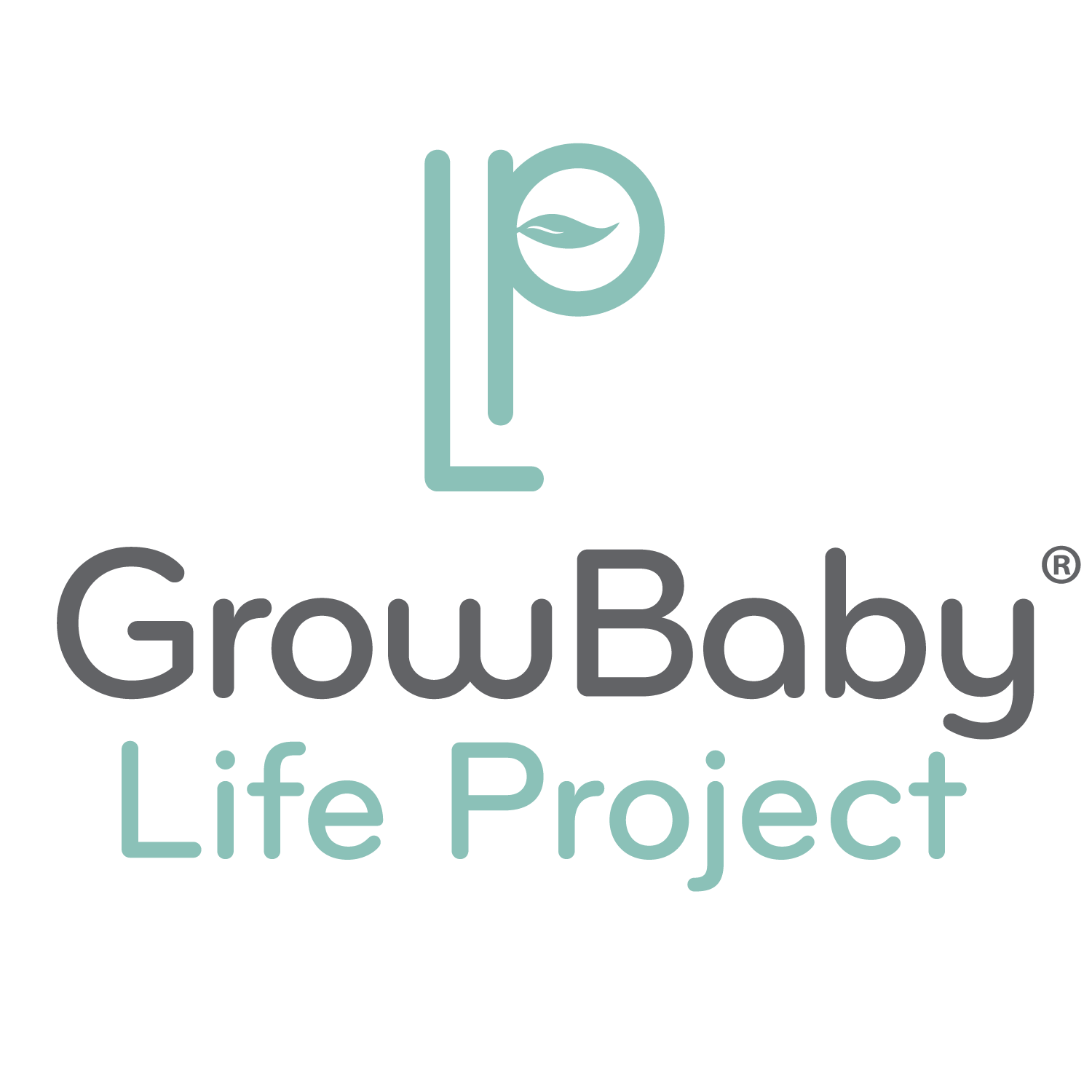
Revolutionizing Maternal Care Through Nutrition.
Shaping healthier generations to come.
We believe that every person is unique and deserves personalized care, especially during pregnancy and postpartum. We envision a future where nutrition is not an afterthought, but an integral part of maternal healthcare & focuses on reaching those who need it most.
Why Nutrition Matters
Your health needs are constantly evolving, influenced by your genetics, lifestyle, and environment. By understanding these individual factors and applying targeted nutrition and lifestyle interventions, we support your health and your baby's development.
The GrowBaby® Difference
Since 2010, our clinically proven & evidence-based Pregnancy Care Model has been transforming lives in clinical practice, particularly within underserved communities. Our approach is:
Personalized: We use cutting-edge genomic and nutrient biomarker assessments to tailor our recommendations to your unique needs.
Precise: We go beyond generic advice, providing specific and actionable guidance on nutrition and lifestyle.
Collaborative: Our nutrition professionals lead empowering & tailored education sessions throughout the pregnancy journey that emphasize how your unique environment can influence health & resilience.
Impacting Generations to Come
We believe that optimal health starts even before conception. By focusing on nutrition during the preconception and prenatal periods, we can positively influence the short and long-term health of both mother and child. This is the power of "Developmental Programming" – shaping healthier futures, one generation at a time.
Mission & Vision
To revolutionize maternal healthcare by providing preventative personalized, evidence-based nutrition and lifestyle education to optimize health outcomes for mothers and babies who are most vulnerable and underserved.
—
A future where every mother has access to personalized nutrition care that prevents chronic disease and shapes healthier generations, with health disparities eliminated and optimal outcomes achieved for all families.
GrowBaby® Health is Generational Health
The period from preconception through the first 1000 days of a child's life is a critical window of opportunity. During this time, experiences can shape a child's health trajectory, influencing their risk of developing chronic diseases later in life. Fortunately, scientific evidence shows that we can positively impact this trajectory, steering children away from disease and toward a healthier future.

Specific pregnancy (intrauterine)challenges may predict who becomes most vulnerable to chronic disease.
Maternal Outcomes
-
Associated with: Large for gestational age (LGA), maternal diabetes mellitus (T2DM), possible adverse cardiometabolic outcomes in the offspring.
The rise in diabetes and obesity is driving a significant increase in gestational diabetes mellitus (GDM) cases. This poses a serious health concern for women, as GDM significantly elevates the risk of developing type 2 diabetes.
Approximately half of women diagnosed with GDM will develop type 2 diabetes within 5 to 10 years after giving birth. This highlights the importance of postpartum monitoring and lifestyle interventions for these women.
A GDM diagnosis carries a lifetime risk of developing type 2 diabetes as high as 60%. This emphasizes the long-term health implications of GDM and the need for ongoing management.
In 2017, an estimated 204 million women aged 20-79 years were living with diabetes; this number is projected to increase to 308 million by 2045. This statistic underscores the magnitude of the problem and the urgent need for effective prevention and treatment strategies.
Hopeful Interventions: Programs like GrowBaby Health have demonstrated remarkable success in reducing gestational diabetes mellitus rates to <1%, offering a beacon of hope and a model for preventative care.
-
Associated with: increased rate of maternal morbidities: seizures, stroke, kidney injury, increased SGA and PTB <34 weeks, and increased perinatal deaths.
Sadly, pregnancy-induced hypertension (PIH) contributes to 14% of all maternal deaths. This highlights how crucial it is to monitor blood pressure and manage any elevations proactively and effectively.
Non-Hispanic Black women face a higher risk of developing gestational hypertensive diseases, emphasizing the need for attentive care and potential preventative measures within this population.
In the US, gestational hypertensive disorders affect roughly 3-14% of pregnancies. This range reflects variations in risk factors and healthcare access across different communities.
Hopeful Interventions: Programs like GrowBaby Health have demonstrated remarkable success in reducing gestational hypertensive disorder rates to <1%, offering a beacon of hope and a model for preventative care.
-
Stress is a part of life, yet left unmanaged & without proper support it is associated with adverse outcomes in both mother & baby.
Many women and mothers have experienced past traumas (ACEs) in their childhood and upbringing. Adverse childhood experiences (ACEs) are common. In fact, women are 50% more likely than men to have a >5 ACES score. Yet, often there are no solutions given for HOW to manage this history. GrowBaby Health addresses this aspect of a mother’s history from the very beginning of their care.
High ACEs associated with: preterm birth, obesity, heart disease, depression, suicide, drug and alcohol abuse
Postpartum Anxiety/Depression (PPD) is associated with: preterm birth and small for gestational age. PPD affects 15-20% of all pregnancies, but it can often start in pregnancy.
Of 65 countries with reliable trend data, all but three show an increase in preterm birth rates over the past 20 years.
— World Health Organization (WHO)
Birth Outcomes
-
Preterm birth carries significant risks and consequences:
Health Impacts for Babies: Preterm birth can lead to long-term health problems for babies, including developmental challenges, increased risk of coronary heart disease in males, higher blood pressure in females, and unhealthy cholesterol levels in males. Sadly, it also contributes to perinatal mortality.
Increased Risk of Small Size: Babies born prematurely have a higher chance of being too small (small for gestational age or SGA), which can cause further health complications.
Health Disparities: Preterm birth disproportionately affects women of color and those with lower socioeconomic status, highlighting the urgent need to address health inequities.
Alarming Rates: In the US, the overall preterm birth rate is 10.8%, but this number can soar to 22% in certain populations, underscoring the need for targeted interventions.
Hopeful Interventions: Programs like GrowBaby Health have demonstrated remarkable success in reducing preterm birth rates to below 2.0%, offering a beacon of hope and a model for preventative care.
*Click below to read the study
-
Being born small for gestational age (SGA) means a baby's birth weight is lower than expected for their gestational age. This can have lasting impacts on their health and development:
Metabolic Concerns: SGA babies are at a higher risk of developing conditions like unhealthy cholesterol levels (dyslipidemias), high blood pressure (hypertension), unhealthy body fat distribution, and type 2 diabetes later in life.
Developmental Challenges: SGA can also impact a child's development, and may have association with learning delays and lower test scores in early childhood.
Short and Long-Term Risks: It's important to understand that SGA is linked to an increased risk of both immediate and long-term health problems, requiring careful monitoring and support.
Prevalence in the US: In the United States, approximately 11% of babies are born SGA, highlighting the significance of this issue.
Hopeful Interventions: Programs like GrowBaby Health have demonstrated remarkable success in reducing small for gestational age rates to 1.5%, offering a beacon of hope and a model for preventative care.
-
Babies born large for gestational age (LGA) have a birth weight higher than expected for their gestational age. While it might seem like a good thing for a baby to be bigger, LGA is actually associated with some potential health concerns:
Increased Risk of Health Issues: LGA babies have a higher risk of developing conditions like asthma, diabetes, becoming overweight or obese, metabolic syndrome, and even certain cancers like breast and colorectal cancer later in life.
Maternal Body Composition as a Key Factor: Interestingly, a mother's weight (>BMI) before and during pregnancy plays a significant role. Elevated maternal BMI is a stronger predictor of LGA infants than high blood sugar levels (hyperglycemia) during pregnancy.
Growing Concern - close to half of the overall adult U.S. population will have obesity and about a quarter will have severe obesity by 2030. Since body composition and fetal weight are correlated, the prevalence of LGA babies is likely to increase, raising concerns about long-term health outcomes.
Current Rates: In the US, the rate of LGA births is currently 12.3%, highlighting the importance of addressing this growing trend.

“Nutrient-associated chronic diseases are due to an incorrect balance or excess of nutrients—We need to turn attention to the quality of diet.”
World Health Organization - 1989
GrowBaby® Health in Partnership with Molina Healthcare in the State of Nevada
In this ground-breaking project, Molina Healthcare has partnered with GrowBaby® Health to implement a 100-mother/baby Performance Improvement Project to Decrease Preterm Births starting in early 2022 in the low-high-risk Molina-Nevada Medicaid OB population. Your support is invaluable! Please read more about this important work.
Education for Providers
It is undeniable that current OB standard of care has saved countless lives and brought healthy babies into this world. The excellent care that all OB providers offer is without question. Yet, we continue to see rising rates of adverse maternal and fetal health outcomes in the US and around the globe that impact the increased risk & development of chronic conditions. How can we see or think differently in this crucial perinatal time period to impact a resilient health story for both mother and baby?
Support for Community
GrowBaby® Life Project in partnership with GrowBaby® Health has created patient-facing educational materials for the perinatal period that emphasize nutrients/lifestyle and focus on foods available to those women and families with access to SNAP and WIC benefits. Medicaid currently covers 50% of all pregnancy care in the US. GrowBaby® Health individualizes care for each mother, no matter the circumstance.
Contact
Feel free to contact us with any questions!
Email
info@growbabylifeproject.org
Please allow at least 5-7 business days for a return email. Thank you for your understanding and patience.







